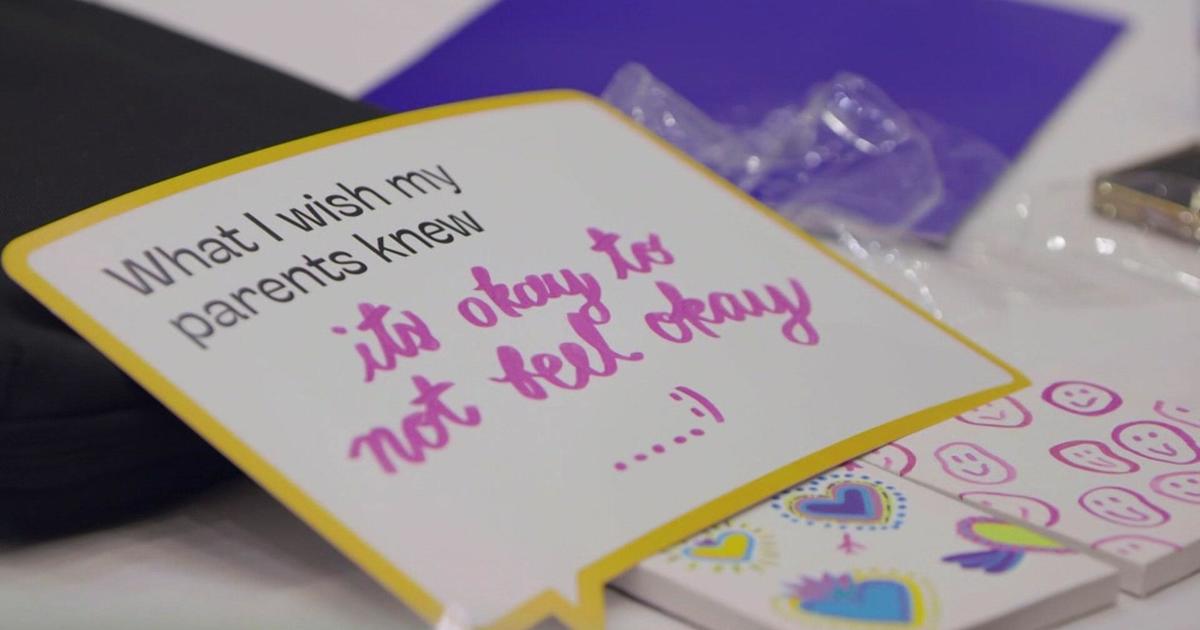Secondhand Clothing Is More Popular Than Ever, Even In A Pandemic
(CNN) -- Big clothing chains are struggling in the pandemic, but for Christina Hurtado, sales are booming.
Hurtado, a full-time nurse, sells clothing under the handle @glittermethod on resale site Poshmark, which connects buyers with sellers of new and used merchandise.
Shoppers have been scooping up athletic wear and swimwear from her, she said, and they can't seem to get enough of her Lululemon-branded clothes, which sell within hours or even minutes of being posted.
"April was actually my highest grossing sales month since I started selling in 2017," she said, adding that "people are finding ways to stay busy with exercise and are looking for new leggings, shorts and bathing suits."
Consumers looking for deals in the recession are turning to resale marketplaces like Poshmark, OfferUp and Mercari to score previously owned items that range from clothes to cars. Secondhand clothing in particular was hot even before the coronavirus hit, and the category is expected to grow despite any concerns of consumer squeamishness over used items in the pandemic, retail analysts say.
Cowen estimated in June that the online market for resale clothing will reach $23 billion by 2023, up from $7 billion this year.
Meanwhile, Walmart, the world's largest retailer, just made a bet on the secondhand market: it said in May that it will sell previously-owned branded clothing, shoes, and handbags online through a partnership with consignment retailer ThredUP.
"Resale has been doing very well through the pandemic," said Neil Saunders, managing director of GlobalData's retail division. "Consumers in general love getting great brands, including high-end luxury brands, at bargain prices."
For sellers, too, it's an opportunity to make extra money during tough times, he said.
While environmentally conscious millennial shoppers have been the early drivers of interest in resale, that's changing. A 2019 report from ThredUP and GlobalData showed that while millennials make up 33% of shoppers of secondhand goods — the biggest segment — boomers are a close second at 31%.
What's selling
In just the first week of the ThredUP partnership, Denise Incandela, head of fashion e-commerce with Walmart.com, said shoppers have been snagging clothing and handbags from brands like Calvin Klein, Tommy Hilfiger and Old Navy.
The average selling price has been $20 for clothing, $35 for accessories and handbags and $40 for footwear, she said.
But there are signs that some consumers still have an interest in secondhand luxury goods, too, despite record unemployment and a recession.
"We also sold our first Gucci hobo bag last week," Incandela said.
The RealReal, the world's biggest resale marketplace for luxury goods, said that demand "remained healthy" in April and May even though the company has faced supply constraints with its warehouses that hurt its ability to fulfill orders.
The company said in an email to CNN Business that from mid-March to mid-April, it saw a 24% year-over-year increase in searches for silk scarves from Hermes, Gucci and Chanel that it believes was driven by "the need for comfortable, polished looks for video meetings from home, as well as CDC recommendations around wearing face coverings."
Another hot item: men's handbags.
"Since COVID hit, search demand has spiked 20% [for men's handbags]. This is likely due to men needing to always be prepared and having a way to carry their 'new' essentials such as masks, hand sanitizers, and gloves," said Aaron McWilliams, the company's senior men's merchandising manager, in an email.
At Poshmark, sales have grown by 50% year-over-year from mid-April into May while listings have increased by 35% in the same period.
The most robust categories are activewear clothing -- sweatshirts, leggings and hoodies -- from brands like Lululemon, Fabletics and Nike.
Sales of pajamas, specifically, have doubled, showing how comfort is a top priority for homebound families, said Poshmark CEO Manish Chandra. And Starbucks mugs have been in hot demand from buyers who want to show them off on virtual conference calls.
"Shoppers are spending more money on a higher volume of affordable items, rather than splurging on a single expensive piece. The trend could hint that people are wanting to be more conservative with spending while also continuing to buy things they love," Chandra said.
'Seeking out the familiar'
On the online marketplace OfferUp, which sells everything from previously owned furniture to cars, bargain hunters are seeking items for the home as well as toys.
"We've seen two significant waves of growth in buying activity recently," said OfferUp CEO Nick Huzar. "The first increase occurred around March 13. The second correlates to the initial distribution of federal Covid relief checks beginning the week of April 13."
He noted a 150% increase in searches for retro toys brands like Pokemon and Hot Wheels and a 110% increase in searches for antiques, specifically couches and chairs.
Videogames searches have soared, with a 155% increase in searches for Nintendo Switch.
As warmer weather takes hold, summertime activities and the need for exercise is driving interest in treadmills, ellipticals, water tables and swimming pools, he said.
Japanese resale startup Mercari is seeing surging demand for vintage items and collectibles. "Glass tumblers, vintage baseball cards and toy cars have been big sellers during the pandemic," said John Lagerling, CEO of Mercari's US operations.
He said consumers are yearning for simpler ways of having fun. For example, jigsaw puzzles are outselling items such as gaming consoles and VR headsets.
"I think it's a reflection of how many of us are feeling these days. Our lives are disrupted, so we're seeking out the familiar," he said.
The-CNN-Wire
™ & © 2020 Cable News Network, Inc., a WarnerMedia Company. All rights reserved.



